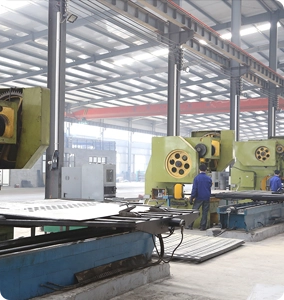Fence Panels for Construction A Comprehensive Overview
When it comes to construction, whether for residential or commercial purposes, ensuring safety and defining boundaries are paramount. One effective way to achieve this is through the use of fence panels. These panels serve not only as a physical barrier but also as an aesthetic element that can enhance the appearance of any construction site. This article explores the various types of fence panels available for construction, their benefits, and considerations for choosing the right type for your project.
Types of Fence Panels
1. Wooden Fence Panels Wooden fence panels are among the most popular choices due to their natural appeal and versatility. They can be made from various types of wood, such as cedar, pine, or redwood, each providing different aesthetic qualities and durability. Wooden panels can be easily customized with stains or paints, allowing for a color that complements the surrounding architecture. However, they require regular maintenance, including re-staining and sealing, to withstand the elements.
2. Vinyl Fence Panels Vinyl fence panels have gained popularity due to their low maintenance and durability. Made from high-quality PVC, these panels do not require painting, staining, or sealing, and they resist fading, warping, and cracking. They come in various styles and colors, making it easy to find an option that suits a particular design. Additionally, vinyl fence panels are eco-friendly, often made from recycled materials.
3. Chain-Link Fence Panels For construction sites that prioritize security, chain-link fence panels are often the go-to choice. They provide high visibility, which can deter trespassers while being cost-effective. These panels are typically made of galvanized steel, which offers durability and resistance to rust. Despite their utilitarian appearance, chain-link fences can be enhanced with privacy slats or decorative elements.
4. Metal Fence Panels Metal fence panels, including those made from aluminum or wrought iron, offer a robust and stylish solution for construction sites. These panels provide excellent security while adding a touch of elegance to the property. Metal fences are resistant to weather damage and pests, making them a long-lasting option. However, they can be more expensive than other types of fencing.
5. Composite Fence Panels Composite fence panels blend wood and plastic fibers, offering the aesthetic appeal of wood with the durability of plastic. These panels are resistant to rotting, warping, and fading, making them a low-maintenance option for construction sites. Additionally, they are often manufactured from recycled materials, contributing to eco-friendly practices.
Benefits of Using Fence Panels in Construction
fence panels for construction

- Security The primary advantage of installing fence panels around a construction site is the security they provide. They create a barrier that helps prevent unauthorized access, protecting both the site and its materials. - Safety Fence panels help to safeguard workers on-site by keeping the construction area isolated from the general public. This is particularly important for large projects that may pose hazards. - Aesthetic Appeal With a variety of styles and materials available, fence panels can enhance the visual appeal of a construction project, contributing positively to the overall landscape.
- Privacy For residential construction, privacy is often a concern. Fence panels effectively shield the work from public view, ensuring the homeowner’s peace of mind during the construction process.
- Noise Reduction In urban areas, construction can generate significant noise
. Certain fence panels can help mitigate noise levels, creating a more tolerable environment for both workers and surrounding residents.Choosing the Right Fence Panel
When selecting fence panels for a construction project, several factors should be considered
- Purpose Determine the primary purpose of the fence—whether it’s for security, privacy, or aesthetics—and select a panel type accordingly. - Budget The cost of materials and installation can vary significantly. Assess your budget and explore the most cost-effective options that meet your needs.
- Local Regulations Check any local building codes or zoning laws that may dictate the type, height, and placement of fence panels.
- Maintenance Consider how much maintenance you are willing to perform. Some materials require more upkeep than others.
In conclusion, fence panels are an integral part of the construction process, providing security, privacy, and aesthetic value. With various types to choose from, it’s essential to understand the specific needs of your construction site and select the most appropriate fencing solution. By doing so, you can ensure a safer, more organized, and visually pleasing environment as your construction project unfolds.
-
Why Galvanized Trench Cover Steel Grating Resists Corrosion
NewsJul.10,2025
-
The Versatility and Strength of Stainless Expanded Metal Mesh
NewsJul.10,2025
-
Load Calculations in Steel Grating Platforms
NewsJul.10,2025
-
Keeping Pets and Kids Safe with Chicken Wire Deck Railing
NewsJul.10,2025
-
Hole Diameter and Pitch for Round Perforated Metal Sheets
NewsJul.10,2025
-
Aluminium Diamond Mesh in Modern Architecture
NewsJul.10,2025
Subscribe now!
Stay up to date with the latest on Fry Steeland industry news.

